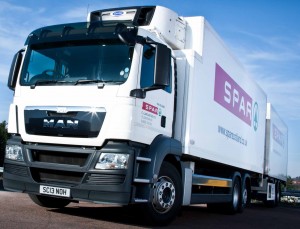 The use of smart tags and smart labels is a rapidly- emerging data collection trend seeing widespread use in the Food & Beverage industry to track products and shipments in cold chain management.
The use of smart tags and smart labels is a rapidly- emerging data collection trend seeing widespread use in the Food & Beverage industry to track products and shipments in cold chain management.
Through the cold chain, temperature-sensitive food products have to travel safely from manufacturers to receivers and finally to consumers. RFID dataloggers are part of a growing industry shift toward using food safety products for supply cold chain validation and asset tracking. Temperature monitoring and alarming solutions for cold chain applications are already in place and RFID can increase product and process safety. There are seven long-term benefits RFID products bring.
Firstly RFID can reduce inventory and shipment losses. Food processing companies lose a full one-third of all their perishable goods due to poor cold chain handling–these products don’t even survive to reach the market. Temperature data loggers help prevent this massive waste, improve product safety and consumer health, and avoid incurring further costs. With real time alarming, RFID tags and labels let drivers and staff know the moment that temperatures go out of spec. Secondly, temperature can be monitored in real time. RFID tags use radio-frequency electromagnetic fields to transmit temperature data and also return an ID# when scanned. This real-time data is critical in temperature profiling applications where even a slight delay in staff response can mean the loss of the entire shipment or inventory. In this regard, RFID devices are ideal for shipping and transport needs—drivers just place them on product palettes and let them record. It is easy to do a quick temperature check during stops by scanning the tags/labels with an RFID reader and seeing if any are outside safe temperatures.
Cold chain compliance
The proliferation of RFID tracking systems and software is expected due to the increased electronic regulatory documentation demands from the FDA and other government bodies. Using RFID temperature data loggers regulatory compliance can be achieved at a low cost – and remotely track products all the way to receivers. Scanning devices do not need a line of sight to detect RFID tags, which are attached to or embedded in the tracked product. Many shippers and manufacturers need to prove to receivers that their product stayed in temperature spec for the whole trip, and RFID gives them a convenient way to prove it. With smart labels and tags users can remotely track and identify individual products and shipments.
Livestock POS
RFID technology used in the livestock market is expanding as receivers use it to track animals to their point of sale. This can help ensure product safety by helping identify good suppliers and also make for more effective recalls. In addition, experience of reliable delivery, regulatory compliance and increased product quality through these best practices means that vendors adopting RFID can expect a boost in their reputation.
It is expected that food processing plants will be the biggest market for RFID temperature monitoring products. Meat processors especially will come to rely heavily on RFID diagnostic products for food safety testing, but no matter the industry, early adapters will realize benefits in the form of cold chain transparency and validation.
By Pete Martin
CAS Dataloggers
